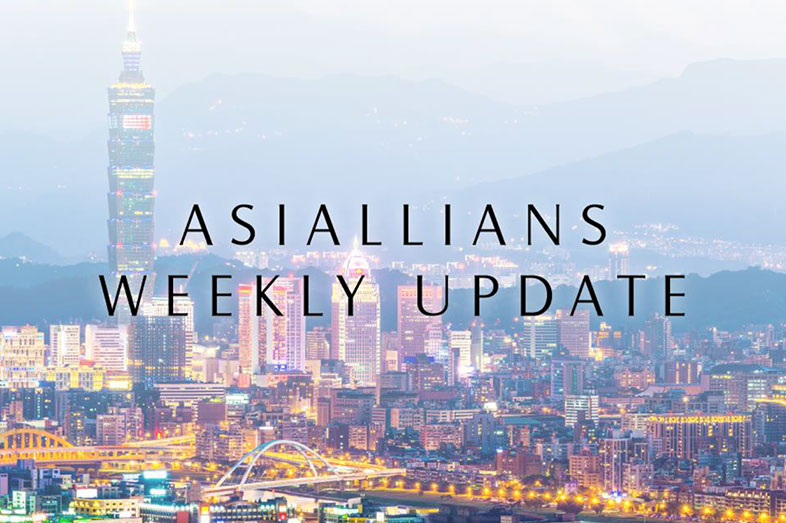
- Feb 03, 2020
Background
The Taiwanese Government has issued strong warnings over the increasing threat of the spread of the infectious virus, named as the Coronavirus (2019-nCoV). The infection has, as of today, been named as a global health emergency by the World Health Organisation (WHO). The Virus causes severe respiratory problems and has swept across China after emerging from the city of Wuhan in the district of Hubei. Cases have increased to roughly 10,000 individuals across China with 18 other countries, including Taiwan, reporting cases. The infection has forced businesses - including tech giants, carmakers and retailers - across China to temporarily shut down, causing ripple effects across Asia.
A Taiwanese woman in her 50s, who had returned from Wuhan, visiting her husband, was the first to test positive for the virus in Taiwan and has been followed by 10 other separate cases, all of whom are being treated by medical professionals.
Recognition and prevention
Fearing an outbreak in Taiwan, the Government has reaffirmed the WHO position that the risk assessment at a global level is “high” and that the proximity to the mainland – and the particularly close ties between the people – means that the threat the outbreak poses is severe. Premier Su highlighted that there needed to be short- and long-term preparations that include management of facilities and allocation of personnel and resources.
Furthermore, there has been an increase in screening and isolation measures at all entry points in the state. This was reinforced by President Tsai who has said that February will be a month of “high alert” with stringent requirements for “truthful declarations … as well as rigorous follow-ups” and quarantine being in effect for all of those with a history of travel to Hubei.
The President has also directed the Central Epidemic Command Centre, a section of the CDC, to develop a set of guidelines with effective steps to communicate this advice to the general public. This included emphasising the potential use of commercial broadcasting frequencies and telecommunication bandwidths to provide the public with this information. Information clarity has been a key point for countries across the globe as there has been a growth of misinformation that has spread across social media including false health advice, speculation on the origin of the virus, and general conspiracy theories.
Surgical Masks
A week of insufficient reserves of surgical face masks has seen roughly 20 million sold since the outbreak, with most shops having no supplies left. In response, the Government promised to ensure “centralised procurement, centralised distribution, and centralised pricing”, meaning that various state agencies will play fundamental roles in the funding and distribution of fresh stocks of masks.
To ensure that enough masks become available, the Government, through the Centres for Disease Control, have laid out plans to purchase 4 million masks a day to ensure continued supplies reach the market, contracting out major medical supply providers such as Nan Liu Enterprise Co. and KNH Enterprise Co.
This is then to be distributed fairly which has seen the Government impose a strict three masks per person until February 15th whilst reassuring the public that only those who are unwell should wear them, with priority being given to medical personnel and civil servants.
Also, the Consumer Protection Committee (CPC) has issued a warning that anyone who is found to be artificially driving up the prices of the masks would face a heavy fine or be subject to imprisonment. The agency has highlighted Article 251 of the criminal code which sees intentional inflation or stockpiling of masks could result in three years imprisonment and NT$300,000 fines, whilst breaching the Fair Trade Act for the same practices would result in fines of NT$50,000 - NT$25 million. Furthermore, attempts to either mail or transport too many surgical masks out of the country would constitute an offence of the Customs Anti-smuggling Act as the Ministry of Finance have enforced an export ban period lasting until February 23rd.
Economics
A large fear of the outbreak has been the economic impact that may occur from the virus. The Taiwanese stock exchange has been dramatically dropping, losing 696.97 points (5.75%) on the 20th of January, a decline which it has not yet recovered from. For example, panic selling damaged Hon Hai Precision Industry (also known as Foxconn), the largest private employer company in Taiwan, with shares dropping by 9.97%, due to the halting of production activities in China. This followed a national trend with Taiwan Semiconductor Manufacturing Co. shares dropping by 4.95% whilst China Airlines Ltd and EVA Airways Corp. dipping by 9.91% and 9.93% respectively.
Laying out the official Government response, President Tsai stated on Thursday. This highlighted that she had instructed the relevant agencies and Governmental departments to, among other things; stabilise the exchange markets; oversee the disease control efforts of companies to ensure production remains consistent with necessary changes to supply lines being delivered; initiate government bailout measures for transportation, tourism and leisure industries; provide subsidies for losses of tour groups, and accelerate public investment and prevent private investment from slowing.
Repeatedly comparing the prevention of the spread of the virus to a “war” or “battle”, the Government has tried to assuage fears that this trend would continue stating that it was related mostly to the normal global market volatility and due to the close geographic location of Taiwan to the mainland, a factor that would be stabilised through scrutiny of entry points.
However, this is contrasted with the markets of Japan, which dipped by 1.72%, and even Hong Kong’s, which dipped by 2.62% despite its proximity to the mainland.
There is also no real confirmation that this economic slouch will bounce back until the virus has been dealt with. Taiwanese economic reliance on consumption will only continue to be bruised as companies, big and small, remain closed or unwilling to do business in China.
